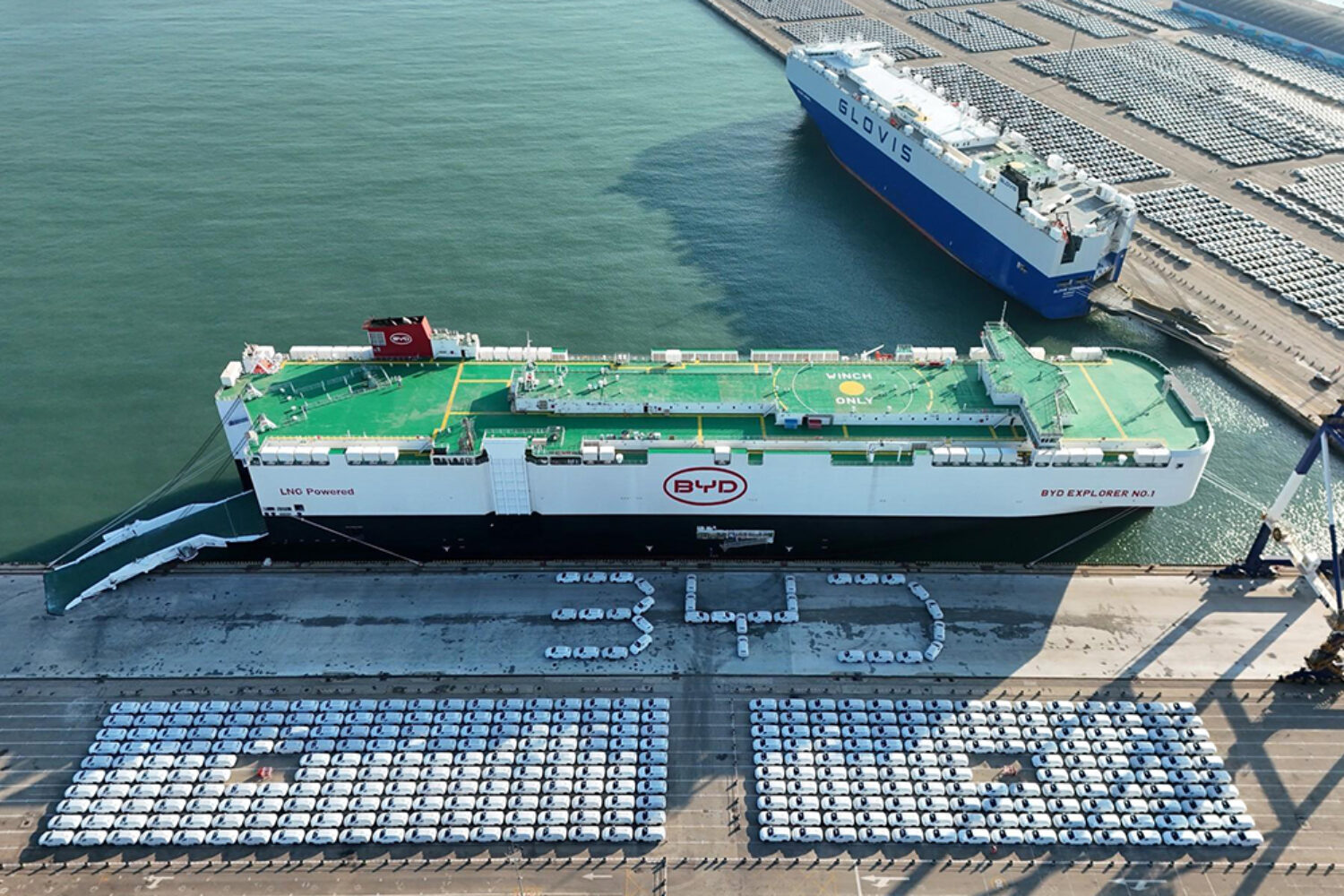Car import ports such as Bremerhaven are hoping for more business with Chinese manufacturers. But the EU wants to make imports more expensive with an extra duty.
Just a few weeks ago, Bremen-based BLG Logistics, the terminal operator, happily announced the arrival of the first car transporter with BYD brand cars. They want to make up for the now declining export volumes of German manufacturers in the Weser port with more cargo from the Far East. However, the EU could now follow the example of the USA and impose additional import duties on cars from China. However, Germany is still resisting. [ds_preview]
The EU Commission is in a hurry. The announced punitive tariffs could be imposed as early as 4 July. The measure is a reaction to “unfair subsidies” in China, it says. Chinese electric cars are, on average, 20% cheaper than comparable European models. The USA has long since taken action: They now demand a 100% surcharge on electric vehicles from China.
EU negotiates punitive tariffs with manufacturers
The EU, on the other hand, wants to demand different levels of punitive tariffs for each manufacturer – depending on the willingness of the companies to cooperate. In the most extreme case, it will be 38.1%. Added to this is a 10% regular import duty for all vehicles from China. That makes a maximum of 48.1%. For BYD, one of BLG’s first customers, it would be 17-20%. However, the US manufacturer Tesla would also be affected by its vehicles produced in Shanghai.
According to the Vice-President of the EU Commission, Margaritis Schinas, the Commission has established contacts with Chinese authorities to discuss possible solutions. Only if these talks are unsuccessful by 4 July will the tariffs be provisionally imposed.
Germany against additional tariffs
The EU member states also have an important say: the 27 trade ministers would have to vote on the duties by 2 November. Sweden, Hungary, the Czech Republic, Slovakia and Germany are opposed to punitive tariffs.
The German government reportedly fears that the punitive tariffs could trigger a backlash from China and ultimately lead to a full-blown trade war. Instead, e-cars in Europe should become cheaper through more competition and significantly better location conditions, according to Federal Minister of Transport Volker Wissing.
China, for its part, levies a 15% import duty on cars imported from Europe and could also raise this. Experts are also not ruling out “retaliatory measures” in other sectors of the economy.













